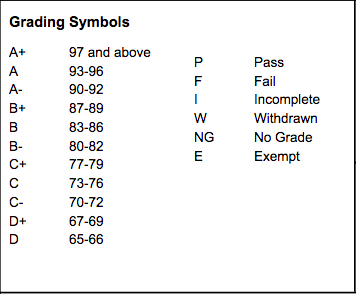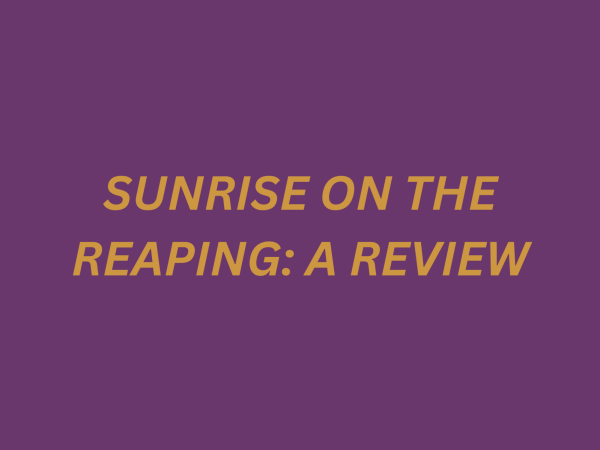Opinion: Current Grading Policy Is A-OK

The administration is rightly standing by the traditional letter-grade system, but including semester grades on transcripts would improve transparency for college applications.
With the end of the year fast approaching, the Scarsdale High School faculty must soon come to a final decision on the policy for grades, an aspect of our lives as SHS students that has been engulfed in this storm of uncertainty. Once the constant tracking device on the education of every neurotic, college-oriented teenager roaming the halls of SHS, the grading system’s signal is now scattered in the confusion of our new socially-distanced lifestyle. Senior Grant Schechtman is eager to point that out. Schechtman created a change.org (http://chng.it/X8qztQMwhL) petition to rally students in favor of changing the school’s grading policy for the second semester. Although the weight of second-semester grades has not yet been set, it is likely that students will receive traditional letter grades. To Schechtman, and many SHS students, this is unacceptable. To me, it is the correct—and only—option.
Scarsdale High School should not adopt a pass/fail grading system for the second semester because, among other reasons, grades matter. We must not use the pandemic as a valve to flush out the notion that grades are, and have always been, a necessary means of tracking students’ progress and, yes, evaluating college applications. Grades have always been a source of stress for Scarsdale students but have nonetheless served an important purpose in our academic lives. Of course, we are now in uncharted territory, and the “accuracy” of the academic measuring stick is now in question, but that is not a reason to do away with the measuring stick altogether. Furthermore, let us not forget that the essence of our education is not just an abstract quest to expand our horizons. There are equations to be learned, historical events to be analyzed, and books to be read; students must be held accountable to take those crucial steps forward in their education. To even engage in this conversation, we must first acknowledge that ditching the traditional grading system is a highly consequential decision. A pass/fail second semester is not a relief; it’s a sacrifice.
Of course, I haven’t sufficiently acknowledged the changing circumstances that have sparked the movement to change the grading system in the first place. First, we must dispel the notion that the most lenient grading policy is inherently the most progressive and understanding. Leniency across the board represents little effort to address each student’s individual needs. In fact, the most understanding policy is one in which students have the ability to reach out to deans and teachers, who will do their very best to adjust the distance learning experience to fit students’ needs—which is the system we have now. Furthermore, we must not blindly submit to the idea that a lenient grading policy helps everybody; it undeniably hurts the credibility and significance of the grades, disengages students, and offers little support to those who need help during this time. Most importantly, the burden of evidence falls on those who wish to see a complete shift in the grading policy, and the arguments listed in the petition are unconvincing to me.
“… it is unfair that students be held to the same standards during a global pandemic as they would be during regular school.” As far as I can tell, there are two main reasons why high school students work hard to attain good grades: college applications and self-motivation. For the former, colleges simply are not holding us to the same standard when looking at this semester’s grades. For the latter, only individual students can decide what standard they will set for themselves, meaning that if students are in fact being held to the same standard during the pandemic, then it is only by their own volition.
“Students are… left particularly unmotivated to do work while now having to completely manage our schedules in a way we never have had to before due to the loss of structure in our lives.” Scarsdale High School students have agency. High school is a time to increasingly gain independence and take control of our lives, and we are responsible for managing our time and completing assignments. There was certainly a significant adjustment to the new routine, which was accounted for with more than a week of no work—to get used to social distancing—and another week, at least, of no graded work—as teachers began to figure out Zoom schedules and teaching methods. More importantly, the lack of motivation of students is not an argument in favor of a more lenient grading system; it should point us in the exact opposite direction. The school should not implement measures that would condone and magnify our supposed unmotivated attitudes; doing so would come at a detrimental cost to the daily habits and mental well-being of every student.
“Many extenuating circumstances exist that prevent people from performing as well currently as they usually might in regular school.” This is the unavoidable, ugly truth of our academic reality, and our societal reality, during the pandemic. Some people must take care of younger siblings, while others may be dealing with sick family members, and some simply cannot guarantee a stable connection during Zoom classes. For colleges, the challenge of deciphering grades during the pandemic is undeniable and practically insurmountable, as no two quarantine experiences are exactly alike.
Starting with the birds-eye-view: all grades from the coronavirus semester will be taken with a grain of salt, no matter the situation of the student. Universities will presume some base level of difficulty and confusion that have made second-semester grades less credible for all students.
Next, if a student is bearing a moderate burden—perhaps weak internet—then the student can and should begin an open dialogue with his teachers to reach a workable solution. Every teacher I have met in my time at SHS would be more than willing to help a student find a way to keep up with the demands of distance learning. If the teacher is, for some reason, particularly harsh, then a student can seek the advice of a dean or youth outreach worker. In response to Schechtman’s petition, the administration suggested that Schechtman open a dialogue with his dean about his workload. I emailed my dean today to schedule a meeting to discuss, among other topics, my concerns with the college admissions process, and I got a response within an hour. Skipping directly to a universal shift in the grading policy will not help each individual student navigate his specific issue but will instead offer him a chance to simply not solve it.
Moving past the guaranteed inconveniences of distance learning and the potential obstacles some students may disproportionately face, there is another level of hardship that we must, as a community, acknowledge and empathize with. Some students are facing mental health issues or unusual financial difficulties, while others are challenged with illness or, God forbid, the death of a family member. It is categorically immoral to subject these students—who are carrying a catastrophic level of stress, grief, or both—to the ordinary stresses of high school life. But the same is true of students dealing with such difficulties during regular schooling, and there are measures in place to help those students cope, without overhauling the grading system. Even colleges—the heartless pseudo-meritocratic machines that they are—recognize the possibility of extenuating circumstances, which is why they ask students if there is any particular explanation for a poor performance in a particular semester. The decision by the administration to stick to the traditional grading system does not indicate that they have forgotten about students facing hardships, but instead that they are treating the grading policy for the entire school and the education of a small group of students enduring unfortunate circumstances as two separate issues.
Finally, the built-in grade inflation of the proposed policies—which involve an option to wipe out second-semester grades or significantly curve them—is, again, a sacrifice, and not a relief. Grade inflation does not truly indicate better performance by any student and consequently only serves to confuse college admissions departments.
Through the lens of college admissions, I am operating under two assumptions: 1) that colleges are sincere in saying that they are going to do their best to understand each student’s 2020 experience, and 2) that more information is usually better than less information in their effort to understand our grades (in the general sense, that is—information overflow is also a consideration). For that reason, among the others I have explained, it is my belief that the best way to maintain student engagement, retain the credibility of grades, help students who are struggling, and help colleges decipher SHS’s pandemic experience, is to keep the traditional grading policy, continue the classroom level, feedback-based teaching approach, and include a letter grade for each semester on our transcript.
One has to wonder: if colleges are honest in their promise to devalue second-semester grades, how will they do so if they do not actually know what our second-semester grades are? To answer that question, we should include a semester breakdown for our 2020 transcripts, and then we should maintain our trust in colleges—to not derail our future due to an unpredictable pandemic—and maintain our trust in our teachers—to not derail our present for the same uncontrollable reason. Then, finally, we should be grateful for the blessing that we go to a wonderful school where we are able to place that trust in our educators in the first place.
If you have been struggling during social-distancing, or if you just need someone to talk to, I have attached a link to the contact information of our youth outreach workers. It is my sincere hope that all students get the help and attention we need, regardless of what happens with the grading policy this semester. I also hope that our community is strong enough to provide that support without sacrificing the grading policy.
https://www.scarsdaleschools.k12.ny.us/Page/23592









